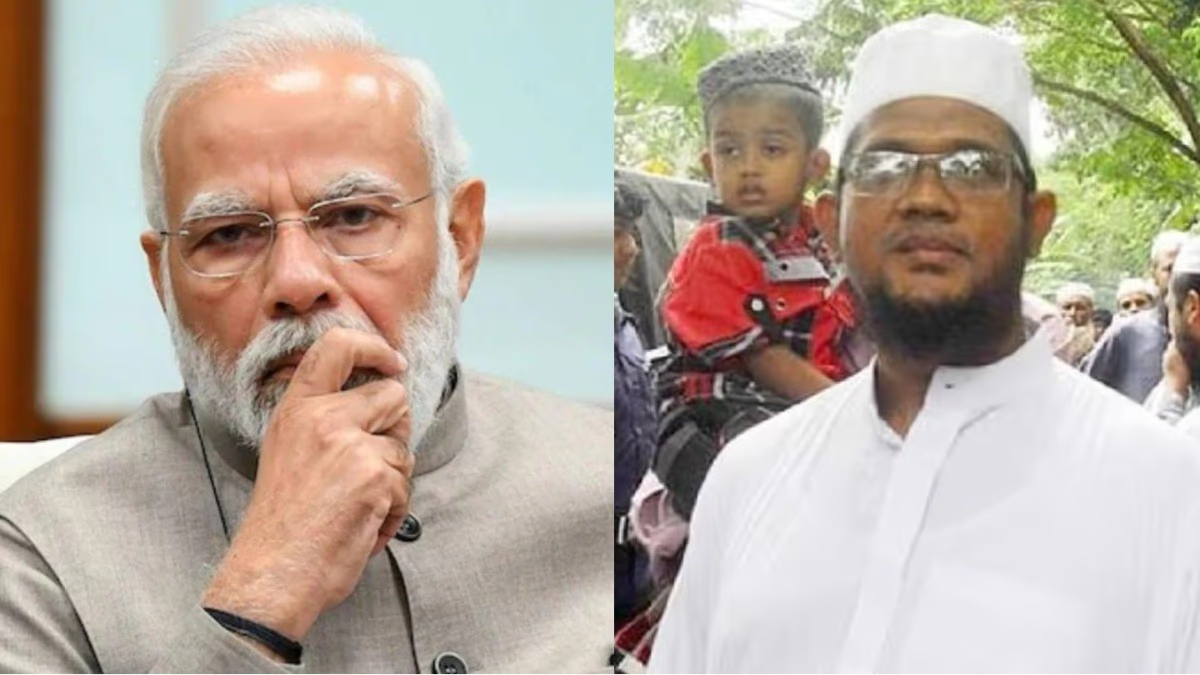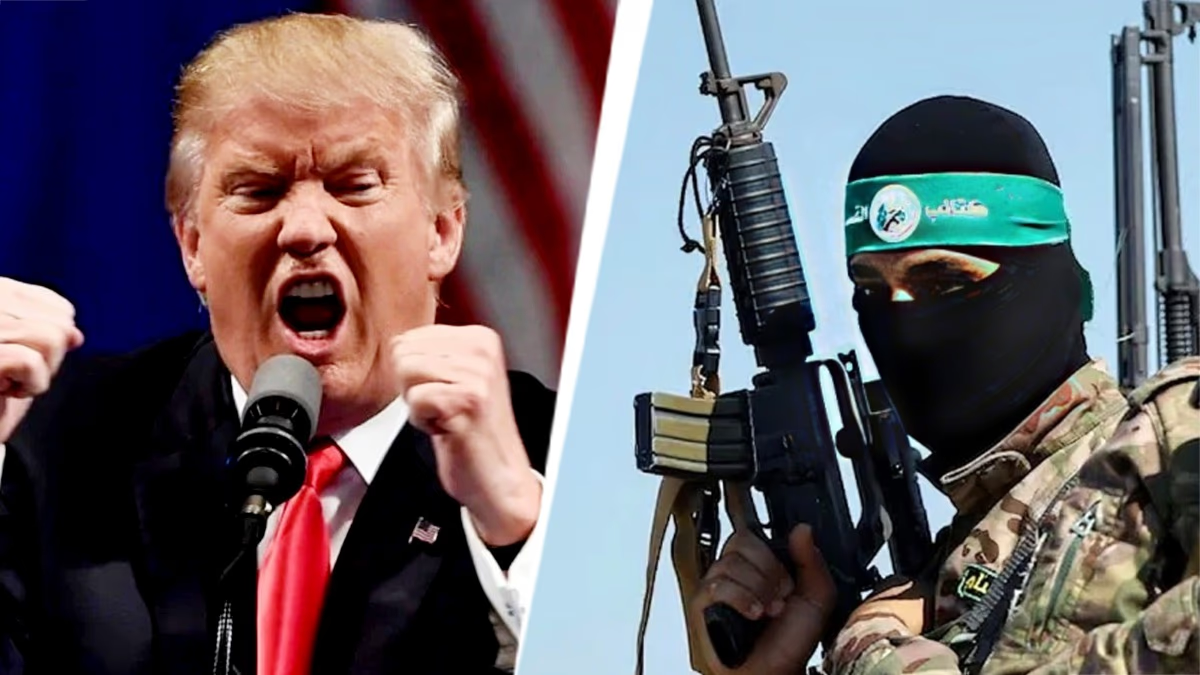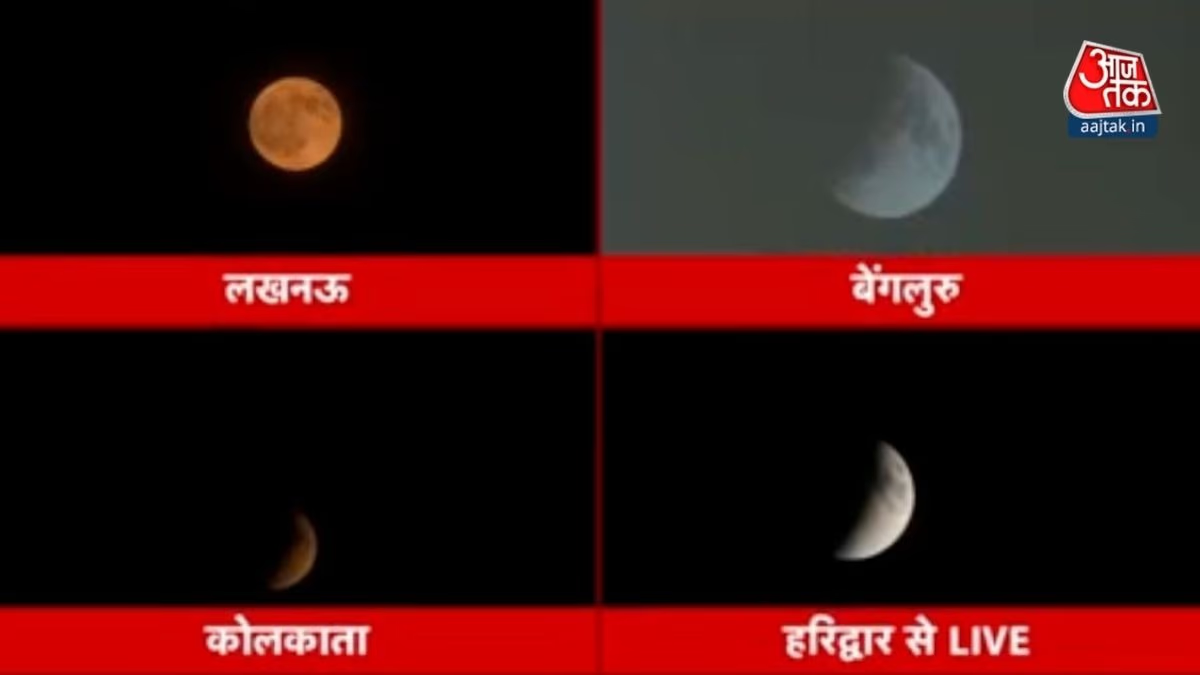After the fall of former Prime Minister Sheikh Hasina's government, Nobel laureate Prof. Muhammad Yunus is leading the caretaker government in Bangladesh. Since taking charge, he has been lifting bans on radical organizations and releasing convicted terrorists from jail. These developments are extremely concerning for India.
On Wednesday, the interim government led by Muhammad Yunus lifted the ban on the main Islamic party, Jamaat-e-Islami, and its factions. Just two days before, on Monday, August 26, it also released Ansarullah Bangla Team (ABT) leader Jashimuddin Rahmani on parole. Reports suggest that ABT has links with the notorious terrorist organization Al-Qaeda and has been involved in failed attempts to spread terror in India.
Rahmani was serving time for inciting blogger's murder
Rahmani was arrested for inciting the murder of Bangladeshi blogger Rajib Haider. Haider was murdered outside his home in Dhaka. Rahmani was also accused of being involved in the targeted killing of several secular bloggers and journalists between 2013 and 2016, a responsibility claimed by ABT. Experts say that ABT is trying to establish a jihadist network in India, and New Delhi needs to be vigilant.
During Sheikh Hasina's rule in 2015, ABT was banned in Bangladesh. Later, it rebranded itself as Ansar al-Islam, which was again banned in 2017.
Release of terrorists raises India's concerns
The release of ABT leader Jashimuddin Rahmani is a major concern for India as Rahmani's group has been attempting to establish a jihadist network in India through sleeper cells. Clearly, his group will now try to expand its operations in India more quickly.
Does Ansarullah pose a threat to India?
Several terrorists associated with Ansarullah Bangla Team have been arrested in India in the past. In May this year, Assam Police arrested two ABT terrorists, Bahar Miyan and Raerly Miyan, from Guwahati Railway Station.
It is claimed that ABT is linked to Al-Qaeda in the Indian Subcontinent (AQIS), an organization set up to promote Al-Qaeda's ideology and objectives in South Asia, which is banned in India.
How Ansarullah formed an alliance with Lashkar
Sources told India Today that Pakistan-based Lashkar-e-Taiba (LeT) has allegedly formed an alliance with ABT to carry out terrorist attacks in India's northeastern states. According to sources, LeT's cooperation with ABT began in 2022 when it set up a base in Bengal with the aim of launching attacks in India.
Intelligence inputs from 2022 also indicated that at that time, about 50 to 100 ABT cadres were planning to infiltrate Tripura. Assam Police arrested several ABT terrorists on multiple occasions, thwarting the group’s attempts to establish a network in the northeastern state.
Threat to India post Sheikh Hasina's departure
As the Prime Minister of Bangladesh, Awami League leader Sheikh Hasina was always serious about India's security concerns. During Hasina's rule, actions were taken against anti-India forces in Bangladesh, which had turned Bangladesh into a safe haven during 2001-2006 under the BNP-Jamaat-e-Islami regime.
Now that Sheikh Hasina has been ousted from power following violent nationwide protests, India's concerns are naturally heightened.
Terrorists raise their heads post Hasina
On August 5, after Sheikh Hasina's departure from Bangladesh, there was a prison-break incident in Sherpur (northern Bangladesh, adjacent to the Meghalaya border) on August 6. An armed mob attacked a high security jail and released the leaders of several terrorist organizations.
More than 500 prisoners escaped during this jailbreak, including ABT's Ikramul Haque alias Abu Talha, who had been involved in terrorist activities in India.
Abu Talha was arrested in Dhaka in 2023 based on intelligence from Indian agencies.
These incidents, though not making headlines in India, are extremely serious and concerning for the northeastern part of India, which heavily depends on a stable, secure, and friendly Bangladesh for its development.
Think Tank warns
Former IAS Radha Krishna Mathur's think tank 'The Society to Harmonize Aspirations for Responsible Engagement' (SHARE) has also warned India about the threats posed by escaped extremists and terrorists from Bangladesh.
SHARE has warned that this situation is particularly concerning for Assam and Tripura, where several modules of ABT and JMB have been exposed in recent days. Between 2022 and 2023, more than 60 ABT members were arrested from these states, including over 30 from Bangladesh.
The release of extremists and terrorist groups raises questions about the intentions of Bangladesh's caretaker government leadership.
Ban lifted on anti-India Islamist party
The caretaker government led by Muhammad Yunus has lifted the ban on Jamaat-e-Islami. This party has been accused of promoting violence and extremism. The caretaker government of Bangladesh said there was no evidence found against the party involving in terrorist activities.
Hasina had banned it
The former Prime Minister Sheikh Hasina's government had banned Jamaat-e-Islami under the anti-terrorism law. The party was accused of inciting violence during student-led protests. The violent protests forced Sheikh Hasina to resign and flee to India. Jamaat denied the allegations and called Hasina's ban illegal and unconstitutional.
Jamaat-e-Islami may contest elections
Until now, Jamaat could not contest elections in Bangladesh because in 2013 a court banned it from participating in elections, saying its image and registration as a political party were contradictory to Bangladesh's secular constitution.
However, with the change in government and the ban lifted, the party now intends to participate in elections. Party lawyer Shishir Monir said they will file a petition in the Supreme Court on this issue next week.
Jamaat-e-Islami sends a message to India post-ban lift
Famous for its anti-India rhetoric and pro-Pakistan stance, Bangladesh's Jamaat-e-Islami leader Shafiqur Rahman, after the ban was lifted, said his party wants stable relations with India but also made it clear that New Delhi should not interfere in Bangladesh's internal matters.
He said that Jamaat supports close relations between New Delhi and Dhaka but believes that Bangladesh should maintain strong and balanced relations with countries like the USA, China, and Pakistan, 'leaving behind the burden of the past.'
Blaming India for floods in Bangladesh
India was also blamed for the recent devastating floods in Bangladesh, which New Delhi denied with evidence. Therefore, the release of the anti-India terrorist Jashimuddin Rahmani is seen not as an isolated incident but part of a plan that concerns India.
However, later on the flood issue, Shafiqur Rahman said that better communication between India and Bangladesh about releasing water from dams could have prevented this dire situation to a large extent.
Why anti-India sentiment increased in Bangladesh
Sheikh Hasina had cracked down on anti-India forces, which led some in Bangladesh, including a section supportive of Jamaat and Pakistan, to view India's role in their country with suspicion. The narrative was set that Hasina stayed in power in Bangladesh with India's support. As soon as Hasina won the general elections in January again, campaigns for boycotting Indian products highlighted on social media in Bangladesh.




